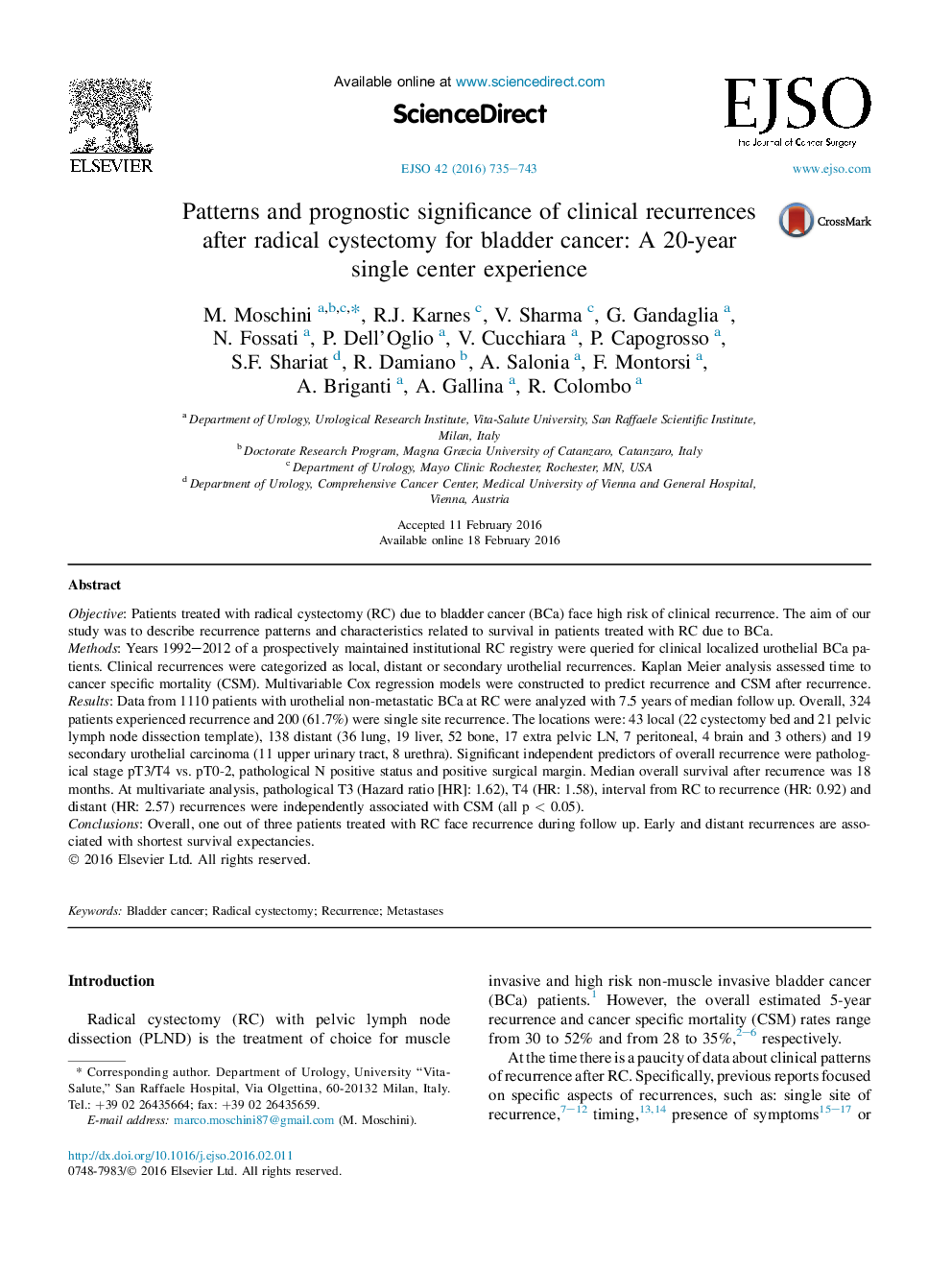| Article ID | Journal | Published Year | Pages | File Type |
|---|---|---|---|---|
| 6191264 | European Journal of Surgical Oncology (EJSO) | 2016 | 9 Pages |
ObjectivePatients treated with radical cystectomy (RC) due to bladder cancer (BCa) face high risk of clinical recurrence. The aim of our study was to describe recurrence patterns and characteristics related to survival in patients treated with RC due to BCa.MethodsYears 1992-2012 of a prospectively maintained institutional RC registry were queried for clinical localized urothelial BCa patients. Clinical recurrences were categorized as local, distant or secondary urothelial recurrences. Kaplan Meier analysis assessed time to cancer specific mortality (CSM). Multivariable Cox regression models were constructed to predict recurrence and CSM after recurrence.ResultsData from 1110 patients with urothelial non-metastatic BCa at RC were analyzed with 7.5 years of median follow up. Overall, 324 patients experienced recurrence and 200 (61.7%) were single site recurrence. The locations were: 43 local (22 cystectomy bed and 21 pelvic lymph node dissection template), 138 distant (36 lung, 19 liver, 52 bone, 17 extra pelvic LN, 7 peritoneal, 4 brain and 3 others) and 19 secondary urothelial carcinoma (11 upper urinary tract, 8 urethra). Significant independent predictors of overall recurrence were pathological stage pT3/T4 vs. pT0-2, pathological N positive status and positive surgical margin. Median overall survival after recurrence was 18 months. At multivariate analysis, pathological T3 (Hazard ratio [HR]: 1.62), T4 (HR: 1.58), interval from RC to recurrence (HR: 0.92) and distant (HR: 2.57) recurrences were independently associated with CSM (all p < 0.05).ConclusionsOverall, one out of three patients treated with RC face recurrence during follow up. Early and distant recurrences are associated with shortest survival expectancies.
